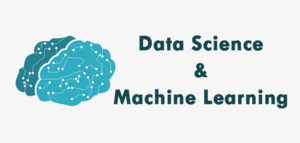IT Sector Jobs in 2025: Top 10 High-Demand Roles You Should Know
The IT industry is no longer just a support department in big companies—it’s the main engine that powers global innovation....

The IT industry is no longer just a support department in big companies—it’s the main engine that powers global innovation. In 2025, IT sector jobs are redefining how we live, work, and interact. From automation to cybersecurity, and cloud computing to artificial intelligence, the digital landscape is evolving at breakneck speed.
What’s driving this change? Three big things: first, the explosion of data and our dependence on digital services; second, the rapid development of AI and machine learning; and third, the global shift toward hybrid and remote workforces. These aren’t just trends—they’re new standards. For companies like Intuit, staying ahead in IT means staying competitive.
Every sector—finance, healthcare, education, e-commerce—is relying on IT experts to design, build, and secure systems. That’s why the demand for skilled professionals in the IT sector has never been higher. In fact, the U.S. Bureau of Labor Statistics projects tech roles will grow 15% by 2031—much faster than the average for all occupations.
Whether you’re a student, job switcher, or simply looking to future-proof your career, the opportunities are massive. Let’s dive into the top 10 IT sector jobs you should be watching closely in 2025.
1. Artificial Intelligence (AI) Engineer
AI is more than a buzzword in 2025—it’s the backbone of business strategy. AI Engineers are in huge demand as companies automate operations, personalize customer experiences, and drive smarter analytics. From chatbots to recommendation systems, AI is making tech more intuitive than ever.
To succeed in this role, you’ll need a strong grasp of machine learning algorithms, deep learning frameworks (like TensorFlow or PyTorch), and a solid background in programming languages such as Python, R, or Java. Understanding data structures, statistics, and cloud platforms is also key.
So, what do AI Engineers actually do? They design, develop, and deploy AI models that help businesses solve problems—whether it’s detecting fraud, forecasting sales, or analyzing customer sentiment. These roles aren’t limited to tech giants either; finance firms like Intuit are actively hiring AI pros to enhance financial services with smart automation and predictive insights.
The average salary for an AI Engineer in 2025 ranges from $120,000 to $160,000, and that number only climbs with experience. With demand skyrocketing and not nearly enough talent to go around, this role is one of the most secure and lucrative in the IT world.
2. Cybersecurity Analyst
In the age of digital everything, cybersecurity isn’t optional—it’s mission-critical. As cyberattacks grow in frequency and complexity, the role of Cybersecurity Analysts is more vital than ever. Every organization, from banks to startups, needs someone to guard its data.
Cybersecurity Analysts are responsible for monitoring networks, identifying vulnerabilities, implementing protection protocols, and responding to threats. Think of them as the digital version of security guards—but way smarter. They use tools like SIEM (Security Information and Event Management), antivirus programs, and encryption to keep data secure.
Certifications like CompTIA Security+, CISSP, or CEH can fast-track your entry into this role. Skills in risk assessment, network security, ethical hacking, and familiarity with compliance regulations are also must-haves.
By 2025, the global cybersecurity market is expected to surpass $300 billion. That growth translates to job security and excellent pay—average salaries hover around $110,000 and can go much higher with specialized expertise. For a company like Intuit, which handles sensitive financial data, cybersecurity analysts are non-negotiable hires.
3. Cloud Solutions Architect
Say goodbye to bulky servers and hello to the cloud. Cloud Solutions Architects are the masterminds behind designing and managing cloud-based systems. As companies migrate their operations to platforms like AWS, Azure, and Google Cloud, the need for cloud expertise is exploding.
A Cloud Architect designs cloud infrastructure that meets a company’s unique needs—ensuring scalability, performance, security, and cost-efficiency. They’re part engineer, part strategist, and all problem-solver. From choosing the right storage solution to deploying apps in the cloud, this role touches every aspect of IT.
To thrive here, you’ll want certifications like AWS Certified Solutions Architect, Microsoft Certified: Azure Solutions Architect, or Google Cloud Professional Architect. Skills in scripting, virtualization, networking, and containerization (hello, Docker and Kubernetes!) are essential.
The salary? You’re looking at $130,000 to $180,000 annually. And because remote cloud access is the norm, many of these roles offer flexible, work-from-anywhere perks. For organizations like Intuit, embracing cloud solutions is key to scaling products and enhancing customer experiences.
4. Data Scientist
You’ve probably heard the phrase “data is the new oil.” It’s true—and Data Scientists are the ones refining that oil into valuable insights. With every click, swipe, and purchase, we generate data. Companies that know how to analyze and act on it are the ones that win.
A Data Scientist builds algorithms to find patterns in large data sets, creates predictive models, and uses data visualization tools to help decision-makers understand what’s going on. It’s not just about crunching numbers—it’s about telling stories with data.
The essential toolkit? Python, R, SQL, Tableau, and tools like Apache Spark or Hadoop. You’ll also need a strong background in statistics, mathematics, and programming.
What makes this job future-proof? Almost every industry—from healthcare to finance to e-commerce—is drowning in data but starving for insights. That’s where Data Scientists shine. With salaries ranging from $115,000 to $150,000+, and no sign of slowing demand, this is one of the hottest roles in the IT sector jobs lineup.
5. DevOps Engineer
DevOps isn’t just a set of tools—it’s a culture of collaboration between development and operations. DevOps Engineers streamline the software delivery lifecycle, from coding and testing to deployment and monitoring. In 2025, this efficiency isn’t just nice to have—it’s a business imperative.
The DevOps toolbox includes tools like Jenkins, Docker, Kubernetes, Git, and Ansible. DevOps Engineers automate repetitive tasks, configure cloud environments, and maintain CI/CD pipelines. Their work ensures software updates roll out faster and with fewer bugs.
What sets DevOps apart? Speed and quality. Companies like Intuit rely on DevOps to rapidly roll out updates to financial software without sacrificing reliability or user experience.
To break into DevOps, it helps to have a background in software engineering or systems administration. Strong scripting skills (in Bash, Python, or Groovy), cloud certifications, and an understanding of agile methodologies are key.
The average salary for DevOps Engineers in 2025? Around $120,000, with senior professionals earning well over $150,000. It’s a high-responsibility role that rewards performance with top-tier pay and job flexibility.






